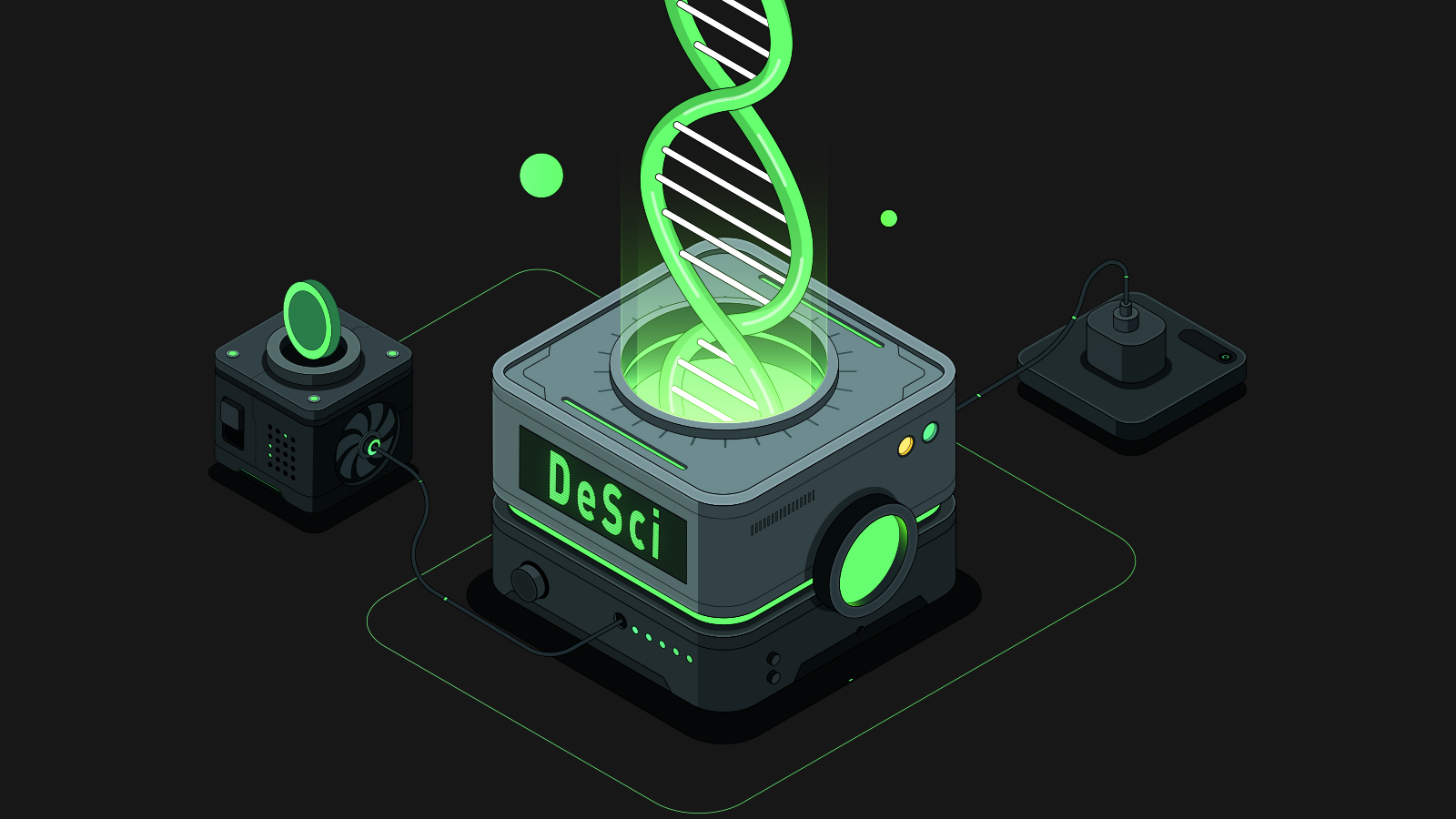Decentralized Science (DeSci) is an approach that uses blockchain technology to make science more transparent, community-focused, and open.
DeSci represents a paradigm shift in scientific research and focuses on four key principles: transparency, decentralization, incentives, and collaboration. By applying the principle of decentralization more robustly, DeSci reduces the reliance on central authorities and intermediaries in the production and distribution of knowledge.
Decentralized science aims to increase access to scientific data, promote transparency in peer review processes, and encourage research collaborations. With the help of blockchain technology, DeSci ensures the security of scientific records while significantly eliminating entry barriers to research.
The emphasis on decentralization reduces the need for intermediaries, providing broader access to resources and research materials.
Additionally, by focusing on transparency, it creates an environment of openness and accountability that enhances the reliability of research and fosters more collaboration, breaking down geographical and institutional boundaries, allowing for the sharing of diverse perspectives and expertise.

How Does DeSci Work?
DeSci uses blockchain technology for secure data storage, decentralized autonomous organizations (DAOs) for decision-making processes, and tokenization to reward research contributions and control intellectual property.
Blockchain provides secure storage, ensuring that data cannot be altered after it is stored. DAOs enable transparent and decentralized allocation of financial resources and project management, allowing stakeholders to make decisions and manage resources without the need for central authorities or intermediaries.
Tokenization of intellectual property (IP-NFTs) plays a crucial role in the DeSci ecosystem, providing researchers with opportunities to contribute and claim ownership of their research findings.
Researchers can use IP-NFTs to tokenize articles, research data, datasets, and patents on the blockchain. These tokens can be used to align incentives within the larger decentralized research community.
The use of IP-NFTs enables academics to obtain ownership rights over their research outcomes. These rights can be traded or licensed on blockchain platforms, promoting innovation and knowledge sharing within the DeSci ecosystem.
What Are the Benefits of DeSci?
DeSci offers several advantages. It lowers entry barriers, increases inclusivity, and allows scientists from diverse backgrounds to participate in and contribute to projects. Additionally, it facilitates open access to data, providing greater trust and transparency.
DeSci fosters collaboration by enabling researchers to work in a decentralized manner, accelerating innovation and supporting problem-solving processes. Innovative systems such as tokens and DAOs allow researchers fair compensation and encourage greater participation.
The use of IP-NFTs gives researchers full control over their intellectual property, providing an opportunity to commercialize their work.
DeSci can also democratize access to research data by removing paywalls.
Differences Between Traditional Science (TradSci) and Decentralized Science (DeSci)
Collaboration and Innovation
- Traditional science has been limited by institutional structures, with scientific practices often isolated from one another.
- DeSci promotes collaboration and enables researchers to interact and share resources by utilizing blockchain technology, aiming to address and solve this issue.
Incentives and Funding
- Traditional science relies on grants and institutional funding, which can lead to inefficiencies in research.
- DeSci solves this issue by using decentralized funding systems to reward and incentivize researchers based on the quality of their work.
Transparency
- Traditional science is heavily reliant on central authorities to validate research results, a process that is often lacking in transparency.
- DeSci enhances transparency and trust by using blockchain technology, ensuring the immutability and integrity of scientific data.
Increased Accessibility
- Traditional science employs subscription-based models for accessing research papers and publications, creating barriers to access and limiting the reach of research findings.
- DeSci democratizes access to scientific knowledge by using blockchain technology to promote open access to scientific publications and data.
You can also freely share your thoughts and comments about the topic in the comment section. Additionally, don’t forget to follow us on our Telegram, YouTube, and Twitter channels for the latest news and updates.


